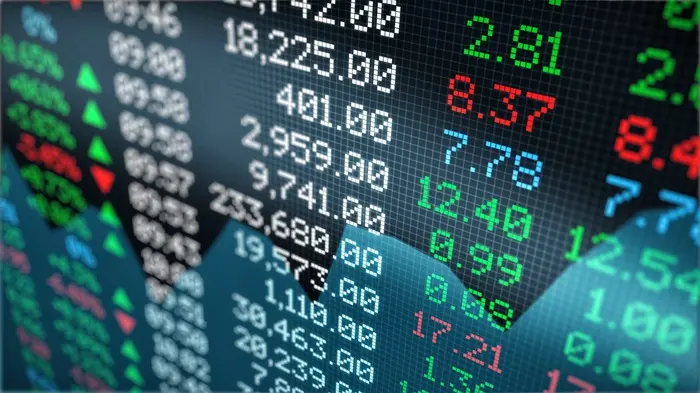Investing in Hong Kong’s stock market offers a wide range of opportunities for both local and international investors. With one of the largest and most active stock exchanges in the world, the Hong Kong Stock Exchange (HKEX) provides access to diverse industries and some of the biggest companies in Asia. Whether you are a beginner or a seasoned investor, understanding the process of buying stocks in Hong Kong is essential to navigate the market effectively and make informed investment decisions.
This article will walk you through the steps required to buy stocks in Hong Kong, the types of accounts you need, the tax implications, and some key considerations for making successful investments.
Understanding the Hong Kong Stock Market
Before diving into the technical aspects of buying stocks, it’s important to have a basic understanding of how the Hong Kong stock market works. The HKEX is one of the largest stock exchanges in the world by market capitalization and offers access to a wide range of securities, including stocks, bonds, and exchange-traded funds (ETFs). Many of the companies listed on the exchange are multinational firms or large Chinese companies, making it an attractive market for both regional and global investors.
The market is open to both retail and institutional investors, and it operates under a well-regulated framework, providing transparency and protection for investors.
Key Features of the Hong Kong Stock Market
Dual-listings: Many companies listed on the Hong Kong Stock Exchange are also listed on other exchanges such as the New York Stock Exchange or Shanghai Stock Exchange. This gives investors the flexibility to invest in companies listed in multiple markets.
Market Segments: The HKEX consists of two main segments, the Main Board and the Growth Enterprise Market (GEM). The Main Board lists more established companies, while GEM caters to smaller companies with growth potential.
Currency: Stocks on the HKEX are traded in Hong Kong dollars (HKD), so it’s important to factor in exchange rate considerations if you’re investing from outside Hong Kong.
Step 1: Open a Brokerage Account
The first step in buying stocks in Hong Kong is to open a brokerage account. There are several options available depending on your location and investment preferences.
1. Local Brokerages
If you reside in Hong Kong, you can open a brokerage account with one of the local brokers. Hong Kong’s financial system is highly developed, and many local banks and financial institutions offer stock trading services. Some popular local brokerage firms include:
- BOCI Securities
- HSBC Securities
- CMB Wing Lung Bank
- Standard Chartered Bank
- Futu Securities
These brokers offer access to the HKEX, and most have online trading platforms that allow you to buy and sell stocks from your computer or smartphone.
2. International Brokers
For international investors who do not live in Hong Kong, many international brokerage firms provide access to the Hong Kong stock market. Some of the top international brokers that allow you to trade in Hong Kong stocks include:
- Interactive Brokers
- Charles Schwab
- TD Ameritrade
- Saxo Bank
- E*TRADE
International brokers often offer access to multiple global markets, including the Hong Kong Stock Exchange, and may provide more features such as research tools, global customer support, and lower fees for larger portfolios.
3. Online and Discount Brokers
In addition to traditional brokers, many investors prefer using online or discount brokers, which provide low-cost trading options. Some of these platforms offer commission-free trading for Hong Kong stocks or charge minimal fees. Examples include:
- Futu (Futu Bull)
- Tiger Brokers
- eToro
Online brokers can be particularly appealing for retail investors looking to minimize costs and manage their portfolios independently.
Documents Required to Open a Brokerage Account
To open a brokerage account, you will generally need to provide the following documents:
Proof of Identity: A passport or government-issued ID.
Proof of Address: A utility bill, bank statement, or government correspondence showing your residential address.
Income or Asset Verification: Some brokers may request proof of income or assets for regulatory compliance purposes, though this is not always required.
Step 2: Fund Your Account
Once you have opened a brokerage account, the next step is to fund your account. You will need to deposit money into the account before you can begin buying stocks. Most brokers allow you to fund your account using the following methods:
1. Bank Transfer
Bank transfers are the most common method for funding a brokerage account. If you are a resident of Hong Kong, you can transfer funds directly from your Hong Kong bank account to your brokerage account in Hong Kong dollars (HKD). This process is typically straightforward and may take 1–2 business days.
For international investors, brokers often provide the option to transfer funds in multiple currencies. If you transfer in a currency other than HKD, your funds will be converted to HKD at the prevailing exchange rate.
2. Credit/Debit Cards
Some online brokers accept funding via credit or debit cards. This can be a convenient way to quickly add funds to your brokerage account, though you should check if there are any fees associated with card payments.
3. Third-Party Payment Providers
Certain brokers also allow the use of third-party payment systems like PayPal, Skrill, or Alipay. However, this option may come with additional fees and is not available with all brokers.
Step 3: Research and Select Stocks
Before making any investment, it’s crucial to conduct thorough research on the stocks you’re interested in purchasing. Hong Kong’s stock market offers a wide array of industries, from finance and real estate to technology and consumer goods. Whether you’re looking to invest in well-established blue-chip companies or emerging startups, having a clear strategy and understanding of the market is key.
1. Analyzing Companies
When evaluating stocks, focus on fundamental analysis, which involves looking at the company’s financial statements, business model, industry position, and growth prospects. Key financial metrics to analyze include:
Earnings Per Share (EPS): A measure of a company’s profitability.
Price-to-Earnings (P/E) Ratio: A valuation metric that compares a company’s stock price to its earnings.
Dividend Yield: The dividend payment relative to the stock price, useful for income-seeking investors.
Return on Equity (ROE): A measure of how efficiently a company uses its shareholders’ equity to generate profit.
2. Keeping an Eye on Market Trends
In addition to company-specific research, it’s important to stay updated on overall market trends. The HKEX is influenced by factors such as Chinese economic policies, global trade dynamics, and interest rate changes. Following market news and analysis can help you make more informed decisions.
3. Consider Investing in ETFs
If you’re unsure about selecting individual stocks, Exchange-Traded Funds (ETFs) offer a diversified way to invest in the Hong Kong stock market. ETFs typically track an index or sector and allow you to gain exposure to a broad range of companies in one single trade. Popular Hong Kong-based ETFs include:
- Tracker Fund of Hong Kong (2800.HK)
- Hang Seng Index ETF (2833.HK)
- HSBC MSCI Hong Kong ETF (HK.HSBC MSCI)
See Also: How to Increase Buying Power in Stocks?
Step 4: Place Your Trade
Once you’ve selected the stocks or ETFs you want to invest in, it’s time to place your trade. Most brokers offer an online trading platform where you can execute trades on the Hong Kong Stock Exchange.
1. Types of Orders
There are different types of orders you can place when buying stocks:
Market Order: This is an order to buy a stock immediately at the current market price. Market orders guarantee that the trade will be executed but do not guarantee the price, as the price can change between placing the order and its execution.
Limit Order: A limit order allows you to specify the price at which you want to buy a stock. The trade will only be executed if the stock reaches your desired price. This offers more control over the price but does not guarantee that the order will be filled if the stock doesn’t reach the specified price.
Stop-Loss Order: This order allows you to set a price at which your stock will automatically be sold if it drops to that level. Stop-loss orders are used to minimize losses in a declining market.
2. Settlement and Fees
When buying stocks in Hong Kong, trades typically settle on T+2, meaning two business days after the transaction date. It’s also important to be aware of the fees associated with stock trading in Hong Kong. Common fees include:
Brokerage Fees: A percentage of the transaction value or a flat fee per trade.
Stamp Duty: A tax levied on the transfer of shares in Hong Kong, usually 0.13% of the transaction value.
Transaction Levy: A small fee (currently 0.0027%) charged by the Securities and Futures Commission (SFC).
Trading Fee: A fee of 0.005% imposed by HKEX on all transactions.
Step 5: Monitor Your Investments
After purchasing stocks, it’s essential to continuously monitor your investments. Stock prices can fluctuate based on company performance, market trends, and global economic factors, so staying informed is critical to making timely decisions. Many brokers offer portfolio management tools that allow you to track your holdings, view real-time stock prices, and access research reports.
1. Rebalancing Your Portfolio
Over time, the value of your investments may shift, and it might be necessary to rebalance your portfolio to align with your investment goals. This could involve selling some stocks that have appreciated significantly or purchasing more of certain stocks to diversify your portfolio.
2. Dividends and Corporate Actions
Many companies in Hong Kong pay out dividends to their shareholders, which can provide an additional income stream. Be sure to track dividend payments, as well as any corporate actions like stock splits, mergers, or rights issues, that could affect the value of your shares.
Tax Considerations
One of the benefits of investing in Hong Kong stocks is the absence of capital gains tax. This means that any profits you make from selling your stocks at a higher price than you bought them are not subject to tax. However, dividend income is subject to a 0% withholding tax for Hong Kong residents, making it an attractive market for dividend investors.
For international investors, tax laws may differ depending on your home country, so it’s advisable to consult a tax advisor to understand how foreign investments are taxed.
Risks and Considerations
While the Hong Kong stock market offers many opportunities, it also comes with risks. Some of the risks to consider include:
Currency Risk: If you’re an international investor, changes in the exchange rate between HKD and your home currency can affect your returns.
Market Volatility: The Hong Kong stock market can be volatile, especially during times of geopolitical tension or economic uncertainty.
Regulatory Risk: Changes in Chinese or Hong Kong government policies can have a significant impact on companies listed on the HKEX.
Conclusion
Buying stocks in Hong Kong is a straightforward process, but it requires careful planning, research, and a clear understanding of the market. By following the steps outlined in this guide, you can open a brokerage account, fund it, research stocks, place trades, and monitor your investments efficiently.
Whether you’re a local or international investor, Hong Kong’s stock market provides diverse opportunities across industries and companies. However, as with any investment, it’s essential to manage risks and stay informed to maximize your returns.
Related topics:





























